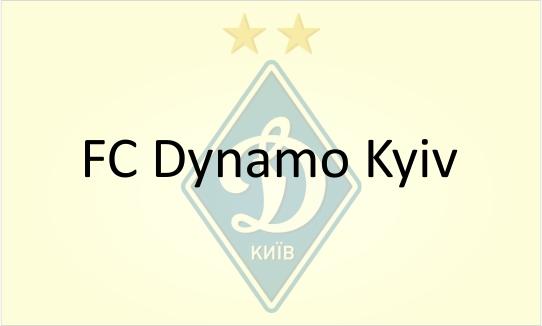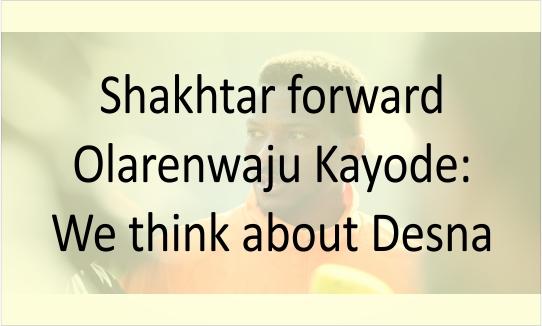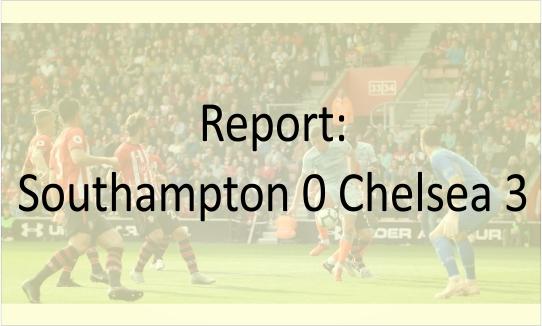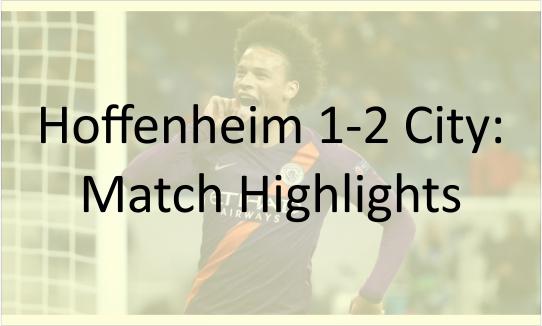FC Dynamo Kyiv

Football Club Dynamo Kyiv ([dɪˈnɑmo ˈkɪjiw]) is a Ukrainian professional football club based in Kiev. Founded in 1927 as part of the Soviet Dynamo Sports Society, the club plays in the Ukrainian Premier League, and has never been relegated to a lower division. Their home is the 70,050 capacity Olimpiyskiy National Sports Complex.
Since 1936, Dynamo has spent its entire history in the top league of Soviet and later Ukrainian football. Its most successful periods are associated with Valeriy Lobanovskyi, who coached the team during three stints, leading them to numerous domestic and European titles. The club became the only one in the history of Soviet football that managed to overcome the total hegemony of Moscow-based clubs in the Soviet Top League. The Spartak Moscow–Dynamo Kyiv rivalry became the most exciting football rivalry in the Soviet Union that almost completely eclipsed the Spartak Moscow–Dynamo Moscow rivalry. Since the late 1960s, the club has participated in the UEFA continental competitions almost every year. It was the first Soviet football club to participate in the UEFA European competitions, starting to do so in 1965.
Over its history, Dynamo Kyiv has won 15 Ukrainian national titles, 13 Soviet national titles, 11 Ukrainian national cup competitions, 9 Soviet national cup competitions, and three continental titles (including two UEFA Cup Winners' Cups). Along with Dinamo Tbilisi, they were the only two Soviet clubs that succeeded in the UEFA competitions. The first team of Dynamo became a base team for the Soviet Union national football team in the 1970–1980s and the Ukraine national football team in the 1990–2000s. The two stars on the club's crest each signify the two cup winners'cups Dynamo Kyiv won.
Early history
On 13 May 1927, the statute of the Kievan Proletarian Sport Society (PST) Dynamo was officially registered by the special commission in affairs of public organizations and unions of the Kiev district. The All-Union sport society of Dynamo itself was just earlier formed in 1923 on the initiative of the Felix Dzerzhinsky. Under the banner of Dynamo gathered the representatives of the GPU (the State Political Directorate, that is, the Soviet secret police), the best footballers of which defended the honors of the Trade Union club "Sovtorgsluzhashchie" (portmanteau for Soviet retail servicemen). The leadership of Dynamo, however, did not dare to reorganize the well-established club and the main title contender in the middle of a playing season and therefore the first mentioning about the football club Dynamo could only be found on 5 April 1928 in the Russian-language newspaper Vecherniy Kiev ("Evening Kiev").
“The Kievan Sport Society Dynamo currently is organizing its own football team. "Dynamo" petitioned to Okrsofik for inclusion of its team in the playing season.”
It was then when by the initiative of Semyon Zapadny, chief of the Kiev GPU, the football team was created. His deputy, Serhiy Barminsky, started to form the team not only out of regular chekists (members of the Soviet secret police), but also footballers of other clubs in the city. All the footballers were either part of the consolidated city team or the city champions. The newly created team played its first official match on 1 July 1928 against a local consolidated city team while visiting Bila Tserkva. Already on the fifth minute the Dynamo-men opened the score in the game, however, at the end the club lost it 1–2. On 15 July, the Bila Tserkva newspaper Radyanska Nyva ("Soviet Fields") put it in such words:
“In the second halftime Bila Tserkva easily strikes the ball in the net, thus, equalizing the score. Kiev tried several counter attacks and even earned a free kick which was not able to convert. Near the end Bila Tserkva under the applause of thousands of spectators strikes in the second ball. The final whistle of the referee has fixated the victory of Bila Tserkva with the score 2:1.”
The next match played by Dynamo was on 17 July 1928 against another Dynamo from the port city of Odessa. As the club gained more experience and played on a regular basis, it started to fill the stadium with spectators with both the club and football in general gaining popularity in Soviet Ukraine.
Soviet era
During the Soviet era, the club was one of the main rivals, and often the only rival, to football clubs from Moscow. Its ability to challenge the dominance of the Moscow clubs in Soviet football, and frequently defeat them to win the Soviet championship, was a matter of national pride for Ukraine. Leaders of the Ukrainian SSR unofficially regarded the club as their national team and provided it with generous support, making Dynamo a professional team of international importance.
In 1936, the first Soviet Championship was played, and Dynamo Kyiv was one of the pioneers of the newly formed league. The club's early successes were however limited to a second-place finish in 1936 and third place in 1937. In the 1941 season, the club only played nine matches as World War II interrupted league play.
The Death Match
The propaganda story is often told of how the Dynamo team, playing as "Start, City of Kiev All-Stars", was executed by a firing squad in the summer of 1942 for defeating an All-Star team from the German armed forces by 5–1. The actual story, as recounted by Y. Kuznetsov, is considerably more complex. Still, this match has subsequently become known in the Soviet media as "The Death Match".
After the Nazi occupation of Ukraine began, former professional football players (Dynamo and Lokomotyv) found employment in the city's Bakery No. 3, and continued to play amateur football. The team participated in exhibition games that took place in the city among various other teams including teams composed of the Wehrmacht soldiers. The Kiev's team played under the name of "Start", comprising eight players from Dynamo Kyiv (Nikolai Trusevych, Mikhail Svyridovskiy, Nikolai Korotkykh, Oleksiy Klymenko, Fedir Tyutchev, Mikhail Putistin, Ivan Kuzmenko, Makar Honcharenko) and three players from Lokomotyv Kyiv (Vladimir Balakin, Vasyl Sukharev and Mikhail Melnyk).
In July and August 1942, "Start" played a series of matches against the Germans and their allies. On 12 July, a German army team was defeated. A stronger army team was selected for the next match on 17 July, which "Start" defeated 6–0. On 19 July, "Start" defeated the Hungarian team MSG Wal 5–1. The Hungarians proposed a return match, held on 26 July, but were defeated again, 3–2.
"Start"'s streak was noticed and a match was announced for 6 August against a "most powerful" "undefeated" German Luftwaffe Flakelf (anti-aircraft artillery) team, but despite the game being talked up by the newspapers, they failed to report the 5–1 result. On 9 August, "Start" played a "friendly" against Flakelf and again defeated them. The team defeated Rukh 8–0 on 16 August, and afterwards, some of "Start"'s players were arrested by the Gestapo, tortured – Nikolai Korotkykh died during the torture – and sent to the nearby labour camp at Syrets. There is speculation that the players were arrested due to the intrigues of Georgy Shvetsov, founder and trainer of the "Rukh" team, as the arrests were made in a couple of days after "Start" defeated "Rukh".
In February 1943, following an attack by partisans or a conflict of the prisoners and administration, one-third of the prisoners at Syrets were killed in reprisal, including Ivan Kuzmenko, Oleksey Klymenko and goalkeeper Nikolai Trusevich. Three of the other players – Makar Honcharenko, Fedir Tyutchev and Mikhail Sviridovskiy – who were in a work squad in the city that day, were arrested a few days later or, according to other sources, escaped and hid in the city until it was liberated.
The story inspired three films: the 1961 Hungarian film drama Two Half Times in Hell, the 1981 American film Escape to Victory and the 2012 Russian film Match.
Last Soviet years
In 1989, the club transitioned into an independent company being disassociated from the Ukrainian republican society of Dynamo. During the last seasons of the Soviet Top League, it competed in the national colors of Ukraine as part of the national movement that grew very popular.
Ukrainian Independence
After the dissolution of the Soviet Union, the club became a member of the newly formed Ukrainian Premier League. Already in the summer of 1993, however, the club appeared in its first crisis as the economic policy of Dynamo president Viktor Bezverkhy set Dynamo on the path to bankruptcy. On 19 July 1993, an extraordinary assembly of coaches and players fired Viktor Bezverkhy and established a stock society "Football Club "Dynamo (Kyiv)". The president of the newly formed company was elected Hryhoriy Surkis. The republican and city councils of the Dynamo society agreed to hand over to Dynamo Kyiv two training centers and the Dynamo Stadium. The founders besides the football team and the Dynamo councils became also the commercial consulting centre Slavutych and the British firm Newport Management. A review board was created, consisting of directors of the Ukrainian Ministry of Interior, Security Service of Ukraine, Border Troops and General Prosecutor.
Dynamo's status as the country's principal club did not change, however, as they went on to dominate domestic competitions, winning or being runner-up in every year of the Premier League's existence and becoming a fixture in the UEFA Champions League. Its main rival in Ukraine is Shakhtar Donetsk, a club from the Donbas region, that came second to Dynamo several times before winning its first Premier League in 2002. The matches between these two sides are called the Ukrainian derby.
In 2007, as a part of club's 80-year anniversary, two gold stars were added to the top of the crest, representing ten Ukrainian championship titles and ten USSR champion titles. Due to club's poor performance in the UEFA Champions League during the last two seasons, Dynamo's management took a somewhat unexpected decision by appointing the first foreign manager in the club's history. Previously, only former players or Dynamo football academy graduates became managers, but in December 2007 Russian coach Yuri Semin was invited to become the new manager of Dynamo Kyiv. However, the club yielded to Shakhtar Donetsk in both the Ukrainian Cup and Premier League in 2008. In 2009. in the club's most successful European campaign since 1999, it reached the semi-finals of the UEFA Cup (eliminating such teams as Valencia and Paris Saint-Germain) but was defeated at that stage by Shakhtar Donetsk. However, 2009 also brought success, as the club celebrated its 13th Premier League title.
In a season which contained their record win, a 9–0 victory over Illichivets Mariupol, the club only managed to finish runners-up in the league in 2010–11, after Shakhtar Donetsk. In what would be icon Andriy Shevchenko's final season at the club, Dynamo also finished as runners-up in 2011–12. In the 2011–12 season Dynamo also managed to reach the group stage of the Europa League after being eliminated in the Champions League third qualifying round by Rubin Kazan by 0–2 in Kiev and 2–1 in Kazan. In the Europa League playoffs, the club managed to defeat Litex Lovech with a 3–1 aggregate score. In the group stage, Dynamo finished third after a disappointing campaign in a group containing Besiktas, Maccabi Tel Aviv and Stoke City.
In April 2013, it was announced the club would play two European ties behind closed doors due to racism from fans during previous European ties. In the 2012–13 season, the club managed to qualify for the Champions League group stage after eliminating Feyenoord 3–1 and Borussia Monchengladbach 4–3 on aggregate and qualified for the Champions League group stage. Dynamo was placed in a group with Paris Saint-Germain, Porto and Dinamo Zagreb and finished in third place with only five points and was eliminated in the Europa League round of 32 by Bordeaux 2–1 on aggregate. In the Premier League, Dynamo finished third, whereas in the Cup, it was eliminated in the round of 32. Overall, the 2012–13 season was a disappointment for Dynamo. The 2013–14 season was an equally disappointing season as Dynamo finished in fourth place in the league, the worst since the establishment of the Premier League and only managed to reach the round of 32 in the Europa League where it was eliminated by Valencia 2–0 on aggregate. Oleh Blokhin was sacked and was replaced by former player Serhiy Rebrov. As a result, Dynamo managed to win the 2013–14 Ukrainian Cup for the first time in five years.
Dynamo's revival
In the beginning of the 2014–15 season, Dynamo signed many promising players such as Aleksandar Dragovic, Jeremain Lens (departed after end of the season), Lukasz Teodorczyk and Vitorino Antunes. Under Rebrov, Dynamo won the 2014–15 Ukrainian Premier League – undefeated – and the 2014–15 Ukrainian Cup to earn a domestic double for the first time in eight years. In the 2014–15 Europa League, Dynamo comfortably qualified from a group containing Aalborg BK, Steaua Bucure?ti and Rio Ave, finishing in first place with 15 points. In the round of 32, the club eliminated Guingamp 4–3 on aggregate, and in the round of 16, eliminated Everton 6–4 on aggregate after a spectacular 5–2 performance in Kiev. Rebrov prioritized the passing game but focused on solid defensive foundations. However, in the quarter-finals of the Europa League, Dynamo was eliminated by Fiorentina 3–1 on aggregate.
In the beginning of the 2015–16 season, Dynamo signed the highly talented Derlis Gonzalez and was drawn in Group G of the 2015–16 Champions League alongside Chelsea F.C., FC Porto and Maccabi Tel Aviv F.C. Dynamo finished in second place with 11 points after a spectacular performance and a memorable 0–2 in Porto. However, Dynamo was punished by UEFA for a racist incident in the home game against Chelsea where four black men were attacked in the stands by Dynamo fans. Despite this, Dynamo reached the round of 16 in the Champions League for the first time since 2000, where it was drawn with Manchester City. Dynamo was eliminated 1–3 on aggregate but managed to hold an impressive 0–0 draw in Manchester. Dynamo's domestic performance was equally memorable as the club celebrated the 2015–16 Ukrainian Premier League only losing to archrival Shakhtar Donetsk 0–3 twice and was eliminated in the quarter-finals of the 2015–16 Ukrainian Cup. At the end of the season, several star performers (such as Miguel Veloso, Aleksandar Dragovic, Younes Belhanda and Lukasz Teodorczyk) departed the club and were not replaced.
Stagnation period
The 2016–17 season was a relative disappointment for Dynamo, as the club finished in second place in the 2016–17 Ukrainian Premier League, behind Shakhtar Donetsk, with a difference of 13 points after a string of disappointing results. In the 2016–17 Champions League, the club was drawn in Group B alongside Napoli, Benfica and Besiktas J.K.. Dynamo finished in fourth place after a dismal campaign, but managed to record a memorable 6–0 win over Besiktas in Kiev. In the winter transfer window, Dynamo signed promising defenders Aleksandar Pantic and Tamas Kadar and focused on youth academy talents such as Viktor Tsyhankov, Artem Besyedin and Volodymyr Shepelyev, managing to improve its performances. Dynamo lost the 2016–17 Ukrainian Cup to Shakhtar Donetsk 0–1 in the final.
For the 2017–18 season, after Serhiy Rebrov departed, the club appointed former player Alyaksandr Khatskevich as Rebrov's replacement. Dynamo participated in the 2017–18 Champions League third qualifying round and was drawn with BSC Young Boys after a promising start to the season. Dynamo won the home game 3–1 but after a bad performance in Switzerland and a defeat of 0–2 was eliminated with a score of 3–3 (on away goals rule) and thus participated in the 2017–18 UEFA Europa League play-off round where Dynamo was drawn with C.S. Maritimo and won 3-1 on aggregate and was drawn with BSC Young Boys, FK Partizan and KF Skenderbeu Korce in the UEFA Europa League group stage.
Shakhtar forward Olarenwaju Kayode: We think about Desna
Shakhtar forward Olarenwaju Kayode answered the questions from reporters ahead of the match vs Desna - Larry, this coming Tuesday, Shakhtar will meet with Manchester City, with you having spent some time with the Citizens. Do you keep in touch with your former teammates or coaches of the English team? - First of all, we should think about our Premier League game on Friday against Desna. These days, it’s the most important point. And after the game, we could well talk about Man. City. - You’ve done some exercises with Moraes, you both seemed to be quite friendly. Don’t you envy Junior due to the fact that he appears in the line-up more frequently than you do? - There can’t be any envy, because Moraes proves himself and deserves this place. I was injured and he played really well. For me, the most important thing is to benefit the club, because we win all together. Any kind of jealousy or envy is out of the question. Junior…
Southampton 0 Chelsea 3 | Report (Premier League)
Eden Hazard’s eighth goal of the season, Ross Barkley’s first in a Chelsea shirt and Alvaro Morata's second strike in four days secured a comfortable victory at St Mary’s this afternoon. The Blues were mostly dominant on the South Coast, but it might have been a different story had Danny Ings converted a golden opportunity when the game was goalless. The league’s topscorer Hazard made the Saints pay on the half-hour after fine work from Barkley, and it was the recently called-up England man who doubled our advantage shortly before the hour to open his Chelsea account. A stunning fingertip save from Kepa Arrizabalaga late on preserved the clean sheet…
Hoffenheim - City | Match Highlights (Match report)
What happened? What a start. The game had barely started when Hoffenheim carved an opening as Belfodil found space between Aymeric Laporte and Nicolas Otamendi to fire a low shot past Ederson with just 44 seconds on the clock. City’s response was superb. First Raheem Sterling set off on a mesmerising dribble that took him past the last defender only for the England winger to lose his footing as he was about to enter the box – what a goal it would have been. With Hoffenheim…


